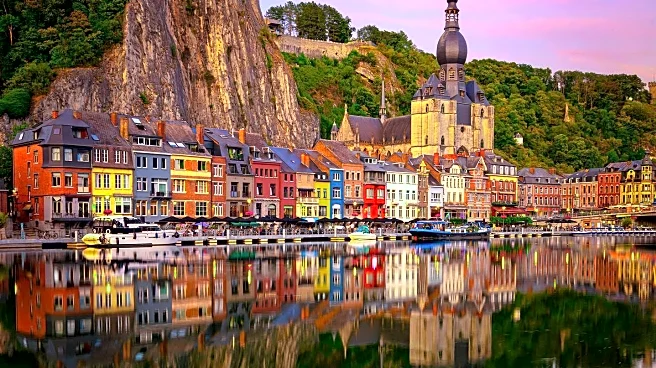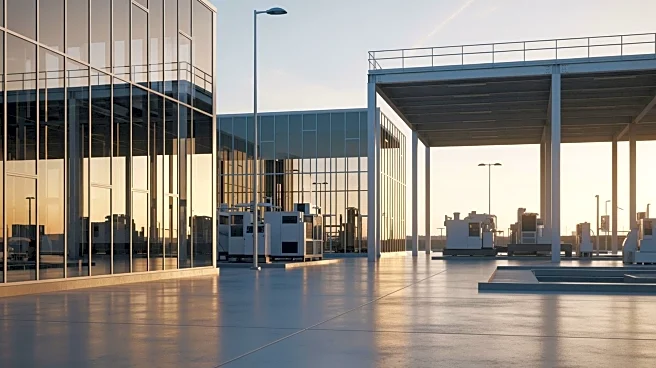By Francesca Landini, Pietro Lombardi, Mohi Narayan and Arathy Somasekhar
MILAN/NEW DELHI/HOUSTON (Reuters) -Europe's petrochemical industry is unravelling under a wave of plant closures after years of losses
and a rapid expansion of global capacity led by China.
High production costs and ageing plants have left European producers struggling, making the region increasingly dependent on imports of primary chemicals such as ethylene and propylene, the building blocks for plastics, pharmaceuticals and countless industrial goods.
"While the rest of the world is building over 20 new crackers, Europe is sleepwalking into industrial decline," Jim Ratcliffe, founder of INEOS said during a recent event, referring to a unit in petrochemical plants.
The billionaire made his money buying up petrochemical plants from BP and others, and along with other industry leaders has criticised a lack of political action.
The European Commission responded this month with a pledge to support domestic production of chemicals deemed strategic for its industries, such as ethylene and propylene. It plans to expand state aid to modernise plants and require public tenders give preference to goods made in Europe - similar to the EU's 2023 legislation for metals and minerals.
But the move may be too late to reverse the damage.
"It's like being on the Titanic — you can't stay in denial. You must go and find a lifeboat," said Giuseppe Ricci, head of industrial transformation at Italian energy group Eni.
Eni's chemical business Versalis accumulated over 3 billion euros ($3.5 billion) in losses in the last five years, Ricci said, as the firm shuts down Italy's last two steam crackers and invests 2 billion euros in bio-refineries and chemical recycling.
Other global groups Dow, ExxonMobil, TotalEnergies, and Shell are also closing or reviewing their European chemical assets.
Most of the planned closures target crackers - a unit that turns hydrocarbons into ethylene, propylene or other primary chemical materials.
A document issued by eight EU countries on petrochemicals in March said that 50,000 jobs could be at risk due to potential closures of more crackers in Europe by 2035.
The EU's plants are mainly small and mid-sized and have been running at an average utilisation rate below 80% - a level considered uneconomical.
Up to 40% of the EU's ethylene capacity — which totals 24.5 million metric tons — is at high or medium risk of closure, including shutdowns announced since late 2024, according to consultancy Wood Mackenzie.
"The proportion of European crackers at risk is much higher than in other regions," said Robert Gilfillan, head of plastics and recycling markets at Wood Mackenzie.
While older European plants use naphtha as a raw material, the United States and the Middle East use cheaper feedstocks like ethane — a by-product of shale gas.
NEW DEPENDENCY
North America's ethylene capacity will grow to 58 million metric tons by 2030 from 54 million currently, according to consulting firm ADI Analytics.
China, meanwhile, will add 6.5% to its ethylene capacity every year between 2025 and 2030, when it will produce nearly 87 million metric tons of ethylene annually, China National Chemical Information Centre CEO Huang Yinguo said in May.
That's more than triple the EU's current capacity.
Chinese producers are also building outposts in Southeast Asia to export to Europe and North America to bypass carbon taxes and Western tariffs on China-made goods.
Japanese and South Korean firms, unable to compete, have kept utilization rates low since 2023, the countries' petrochemical industry bodies said in reports in May.
European policymakers now face a stark choice: intervene decisively or watch the continent's chemical backbone erode.
In their March document, countries including France, Italy and Spain called for a "Critical Chemicals Act", as latest EU data shows the region was a net importer of ethylene and propylene each year in the period 2019-2023.
EU Industry Commissioner Stéphane Séjourné said Brussels will identify strategic supplies and production sites.
"First and foremost, this is about sovereignty — keeping our steam crackers," he told reporters this month.
But sovereignty comes at a cost. Most European crackers are over 40 years old, compared to just 11 years in China, according to Citi analyst Sebastian Satz. And ethylene production in Europe using naphtha costs $800 a metric ton, versus less than $400 a metric ton in the U.S. if ethane is used, and around $200 a metric ton in the Middle East with ethane, Eni said in a presentation published in March.
'SLEEPWALKING INTO DECLINE'
Some companies are betting big on survival.
INEOS, which operates one of Europe's most advanced petrochemical facilities in Cologne, is building a 4 billion euro ethane cracker in Antwerp — the first new cracker in Europe in roughly 30 years, with production capacity of 1.45 million metric tons a year of ethylene.
The plant, due online in 2026, aims to rival Chinese production and meet local demand with a lower carbon footprint.
In the Middle East, consolidation is creating new global giants.
A $60 billion merger between Abu Dhabi National Oil Company and Austria's OMV will form Borouge Group, the world's fourth-largest polyolefins producer. The company plans to export polymers to Europe, competing directly with U.S. and Asian firms.
Analysts say Europe's petrochemical production won't disappear entirely but will become the domain of a few dominant players.
"Only major European companies with the market share to set competitive prices will continue to produce ethylene," said Enzo Baglieri, professor of operations and technology management at SDA Bocconi School of Management in Milan.
($1 = 0.8604 euros)
(Additional reporting by America Hernandez in Paris, Shadia Nasralla in London, Marek Strzelecki in Warsaw, Julia Payne in Brussels; editing by Susan Fenton)










